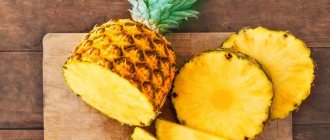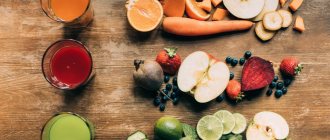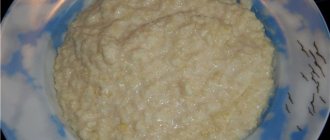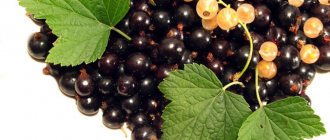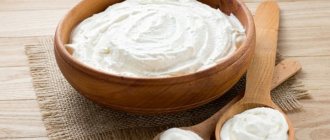Beetroot during breastfeeding helps solve a common problem in women after childbirth - constipation. The presence of nutrients in the vegetable restores the health of the mother and has a beneficial effect on the development of the baby. Contrary to popular belief, root vegetables rarely cause allergies.
Can a nursing mother eat beets? Vegetables are allowed to be included in food at the very beginning of the postpartum period. Thanks to the presence of iron and folic acid, the fetus fights anemia and promotes the full growth and development of the baby. The natural dye in it does not lead to allergic manifestations in the baby.
The expert worked on the article:
Gagarina Svetlana Vyacheslavovna
Author of the article Education: Moscow Medical Academy named after. Sechenov. Professor, Doctor of Science, mammologist, surgical specialist: gynecology, oncology, pediatric and aesthetic surgery.
The information on the site is provided for informational purposes only. Don't self-medicate! Consult your doctor for advice.
Beneficial features
| Function | Responsible element |
| Restoration of hormonal levels in the mother, normal development of the thyroid gland in the baby | Iodine regulates the activity of endocrine glands |
| Prevention of anemia | Iron prevents hemoglobin deficiency |
| Mental health | Khonin shapes the nervous system |
| Removal of toxic substances | Fiber cleanses the intestines by eliminating waste food particles |
| Prevention of cancer | Antioxidants prevent cancer from developing |
The beneficial properties of the product are not lost during heat treatment, and boiled beets during breastfeeding have the same advantages as fresh ones.
Benefits for mother and baby - why it is worth including in the diet
One of the pressing and delicate problems after childbirth is difficulty with bowel movements. Stitches in the perineum or after a cesarean section, hemorrhoids - make this process painful and unpleasant. The beneficial effect of the vegetable is that:
- a large amount of fiber eliminates fermentation processes, absorbs harmful substances, promotes better bowel cleansing and weight loss;
- folic acid and B vitamins, which are contained in the root vegetable, are very important for the full correct formation of the baby’s nervous system and are of no less value for the mother. After the birth of a child, her nervous system is very vulnerable;
- eating beets helps lower blood pressure due to the magnesium in its composition, and also helps reduce cholesterol levels;
- a large number of microelements and vitamins increases the immune defense of a woman who has given birth.
The unique property of beets is that they do not lose their beneficial properties after heat treatment and retain all valuable vitamins and microelements.
Harm and contraindications for breastfeeding
Why beets should not be eaten by nursing mothers:
- in case of gastric pathologies, the vegetable is harmful because it enters into an acid reaction;
- the fruit interferes with the absorption of calcium, and therefore it is undesirable for patients with osteoporosis to eat beets;
- oxalic acid in the root vegetable is harmful to those suffering from kidney pathologies;
- Increased amounts of sugar and carbohydrates are dangerous for diabetics.
Allergy to beets
The root vegetable contains substances that provoke a reaction in the body in people with hypersensitivity. For example, ammonium sulfate, used as a fertilizer. There is also sucrose, which is broken down in the body into glucose and fructose.
Beets during breastfeeding can cause rashes in infants due to the immaturity of the digestive system and the lack of necessary enzymes.
Allergy symptoms:
- sneezing, coughing;
- skin rash;
- pain in the eyes;
- swelling of the nasal passages;
- digestive disorders.
In severe cases, anaphylactic shock and angioedema occur.
Diagnosis of allergies is as follows:
- skin tests. Using a sterile scarifier, scratches are applied to the inside of the forearm. Redness indicates a positive reaction;
- blood test for immunoglobulins;
- elimination test. The allergen is excluded from the diet. If the symptoms disappear, then beets are the cause of the rash.
After making a diagnosis, the doctor will prescribe antihistamines, enterosorbents, and a diet that excludes the presence of the allergen.
How to select and store beets
It makes more sense to purchase root vegetables at fall farmers' markets. Beets for nursing mothers should not contain hazardous substances. Vegetables in large retail chains are treated with chemicals against rodents and for long-term storage, which is not good for health. You can ask private sellers how long the fruits of the selected variety last.
Vegetables can be fodder, sugar or table. To prepare dishes, purchase a third option. The fruits weigh 250-400 g and have a diameter of 6-12 cm. The skin is dense, without traces of rot, dark red in color with a purple tint. If there are leaves, their condition will indicate the freshness of the vegetable. But after purchase, the greens are cut off, otherwise they absorb nutrients from the root crop.
In an apartment, root vegetables are stored on the balcony in specially equipped chests or placed in plastic boxes and wrapped. Provided protection from drafts, the harvest will last up to 8 months. If the temperature on the loggia is above +2 C, root vegetables are stored in boxes with sand or sawdust. Sprinkle wood ash against parasites.
If there is no balcony, find a dark place in the room, for example, a closet or pantry. The vegetables will stay there for up to 2 months. You can put the fruits in the refrigerator, after wrapping each one with parchment to avoid flabbiness.
Rules for eating beets during lactation
Introduction to the diet for breastfeeding
During breastfeeding, beets are allowed to be eaten in the first weeks, but only in boiled form. Valuable microelements in the vegetable will restore the mother’s strength, and the baby will more easily adapt to the influence of the external environment.
- A small root vegetable is boiled without spices;
- cut into small pieces and eat;
- If the baby does not experience a negative reaction within two days, the portion is increased and salt and oil are added.
In the first month
Is it possible to have beets while breastfeeding in the first month? After childbirth, the root vegetable is eaten no more than 2 times a week. As the baby grows up, the amount of vegetables on the menu increases, gradually continuing to be consumed boiled. During lactation, beets are included in soups, salads, and snacks.
2-6 months
During breastfeeding in the second and third months, beets are eaten up to 3-4 times a week, boiled. Fresh vegetables are not included in the menu due to poor absorption. Thermally untreated fruit is eaten only after the end of the lactation period.
Daily norm
Beets for a nursing mother, up to 3 months of age, are allowed in the amount of 50 g per day, boiled. The recommended portion will improve the peristalsis of the stomach and intestines and enhance hematopoiesis. Then add 20 g and analyze the child’s well-being. If the baby’s behavior does not change, the amount of vegetables eaten is increased to 200 g per day.
How does early introduction of beets affect breastfeeding?
Let us divide the effect of early introduction of vegetables into the menu of a nursing mother into the effect in relation to mother and baby:
- Impact on a nursing mother when breastfeeding a newborn. Any food that a mother eats affects the quality of breast milk, beets are no exception. The vegetable has a laxative effect, this is especially useful in the postpartum period when constipation occurs, the fight against anal fissures, and postpartum hemorrhoids. Even boiled beets contain a large amount of vitamins, especially necessary for a woman in labor during the postpartum period. This is doubly significant if the birth was complicated and accompanied by significant blood loss. The root vegetable also effectively restores the amount of hemoglobin in the blood. Take the vegetable separately from calcium-rich foods, because... its components inhibit the body’s perception of the microelement.
- The effect of early introduction of beets on a newborn. For the baby, the beneficial components and vitamins of the vegetable have the same effect as for the nurse. One of the most significant problems encountered in infants is constipation, because... The organs of the digestive system are still at the stage of formation; they cannot synthesize a sufficient amount of the necessary enzymes. The occurrence of constipation in a baby can be caused by an incorrect diet of a nursing mother, poor environmental conditions, sleep disturbances, and stressful situations. One of the traditional medicine recipes suggests using it to solve the problem of constipation, both for the wet nurse and for the newborn. When a painful symptom appears in a newborn, you should not run for pills, ointments or suppositories. An effective folk remedy is a couple of pieces of boiled beets, consumed by the mother.
So can a nursing mother have boiled beets in the first month? We can confidently answer – it is possible and even necessary!
For constipation in infants
If the process of defecation is disrupted, the newborn behaves restlessly, his tummy hardens and becomes convex. Beetroot will help get rid of this. The vegetable stimulates the contraction of the intestinal walls, so that leftover food is eliminated faster. The action is achieved by the presence of acids and sugars in the fruit. In order to relax the muscles of the internal organs, they consume boiled root vegetables and juice from them.
When breastfeeding a newborn up to 6 months old, beets are present only on the mother’s menu. Then you can include the vegetable in complementary foods. If the child suffers from allergies or digestive disorders, the introduction of the root vegetable is postponed for up to a year.
If the baby is prone to constipation, he is given beetroot juice diluted with water from 5 months. At first, the dosage is a few drops. The juice is added to puree or fresh apples. The mixture is allowed to stand for 2 hours, during which time all allergenic esters will evaporate. Gradually increase the portion to 2 teaspoons per dose.
Komarovsky's opinion
Authoritative pediatrician Komarovsky gives a reasoned answer to the question: “Can a nursing mother have boiled or raw beets?”
To summarize the extensive answer, let's reduce it to a set of recommendations:
- When forming a nutritious diet for a mother while breastfeeding a newborn, beets are an indispensable vegetable necessary for adequate nutrition.
- However, when introducing a vegetable into the nurse’s menu, it is necessary to carefully monitor and take into account the reaction of your body and the child’s acceptance of it.
- To reduce the likelihood of negative consequences from consuming root vegetables, it must be exposed to heat in one way or another. The vegetable in its raw form contains extremely aggressive components. Concentrated vegetable juice in undiluted form can lead to negative consequences for the body of mother and baby.
- Raw root vegetables are completely safe only after the baby has finished breastfeeding.
Komarovsky categorically does not recommend giving up eating beets.
Recipes for nursing mothers
During breastfeeding, beets are included in salads, appetizers, first and second courses.
Caviar
Ingredients:
- beets - 3 pcs.;
- carrots - 3 pcs.;
- onions - 3 pcs.;
- garlic - 3 cloves;
- rast. oil - 4 tbsp. l.;
- spices.
Onions and carrots are peeled and chopped. The beets are boiled until half cooked, grated on a coarse grater, and fried in vegetable oil. Add onions, carrots, salt, pepper, mix, add water, simmer for 20 minutes. Add crushed garlic and serve.
Beetroot and herring salad
Ingredients:
- half an apple;
- half a red onion;
- herring fillet 250 g;
- 3 boiled beets;
- spices;
- for dressing - 50 ml plant. oil, 1 tsp. honey, 1 tbsp. l. mustard, juice of half a lemon.
Beets and apples are cut into strips, herring into slices, and onions into half rings. All ingredients of the dressing are mixed and allowed to brew a little. Combine salad ingredients and add sauce.
Beetroot, walnut and prune salad
Ingredients:
- 2 medium beets;
- 100 g walnuts;
- 70 g prunes;
- 2 cloves of garlic;
- 3 tbsp. l. mayonnaise sauce;
- spices.
The beets are boiled and grated. Prunes are soaked for softness and chopped. Walnuts are crushed. Add mayonnaise, grated garlic, and spices.
Salad of beets, beans, pickles
Ingredients:
- 300 g beets;
- can of red beans;
- 2 pickled cucumbers;
- 2 cloves of garlic;
- spoon of olive oil;
- the same amount of lemon juice;
- herbs, spices.
Cucumbers and beet are cut into cubes, garlic is grated, all components are combined. Beet salad for a nursing mother is seasoned with oil. Add spices and herbs.
Beetroot
Ingredients:
- beets with tops - 3 pcs.;
- potatoes—2 pcs.;
- fresh cucumber - 2 pcs.;
- eggs - 2 pcs.;
- green onions;
- lettuce - 2 pcs.;
- dill, parsley;
- garlic - 2 cloves;
- vinegar, horseradish, mustard;
- salt, sugar, pepper;
- sour cream.
Cut the beets and their tops, add water to the root vegetable with the addition of a spoonful of vinegar, and let it cook. After half an hour, add the chopped tops, let it boil for a couple of minutes, then turn off. Boil potatoes and eggs, cut them. Chop the cucumber. Chop all the greens. Add the ingredients to the broth and let stand for a couple of hours. Chop the garlic.
For the dressing, mix a little horseradish, mustard, vinegar, sugar, add garlic, add to the soup along with salt and pepper. Serve beetroot soup to a nursing mother with sour cream.
Borsch
Ingredients:
- meat - half a kilo;
- potatoes - 4 pcs.;
- bulb;
- carrot;
- 3 beets;
- half a head of cabbage;
- 2 cloves of garlic;
- 2 tablespoons of tomato paste;
- a little vinegar;
- salt, pepper, vegetable oil.
Broth is made from the meat and filtered. Add chopped potatoes and cook for 10 minutes. Onions and carrots are fried in oil. Place in broth along with shredded cabbage. Simmer grated beets with tomato paste and vinegar in a frying pan for 10 minutes. Place pieces of meat and beets into the broth, add pepper, sugar, garlic, cook for another 10 minutes. Let it brew.
The vinaigrette
Ingredients:
- beets - 300 g;
- carrots - 150 g;
- potatoes - 150 g;
- peas - 150 g;
- white onion - 100 g;
- lemon juice - 4 tbsp. l.;
- salt, vegetable oil.
Beets, carrots, potatoes are boiled and cut into cubes. The onion is chopped. All components are mixed, lemon juice and oil are added. Place in the refrigerator. To reduce the risk of allergies, beets and carrots during breastfeeding should be well cooked.
Stuffed vegetable
Ingredients:
- medium-sized beets - 10 pcs;
- chicken fillet;
- bulb;
- garlic - 3 teeth;
- hard cheese - 100 g;
- mayonnaise - 2 spoons;
- soy sauce - spoon;
- rast. oil - a little;
- wine vinegar - spoon;
- salt.
Chicken breast is cut, seasoned with soy sauce, salted, chopped garlic is added, and left to marinate in the refrigerator for half an hour. Wash the beets, bake in the oven for about 40 minutes. Cool, cut out a hole. Onions are fried with chicken pieces. In each beet they put a little mayonnaise, meat filling, more mayonnaise and grated cheese. Bake in the oven at 200 C for 5 minutes.
With garlic
A nursing mother can eat boiled beets in a salad during the first month. Its recipe is extremely simple. In the classic version, the dish is seasoned with mayonnaise. Beetroot with garlic is served to a nursing mother with sour cream.
Ingredients:
- 4 beets;
- 6 cloves of garlic;
- 2 tablespoons of mayonnaise (sour cream);
- salt.
The red root vegetable is boiled, peeled, and grated. The garlic is crushed and added to the vegetable. Season with sour cream and salt.
Recipes
Having figured out whether beets can be eaten while breastfeeding, it’s time to familiarize yourself with the recipes for their proper preparation.
The vinaigrette
The most popular and delicious beet salad, which a nursing mother can prepare 5 months after the birth of her baby.
Components:
- medium-sized beet – 1 piece;
- carrots – 1 piece;
- potatoes – 2 pcs;
- canned green peas – 200 g;
- onion – 1 piece;
- vegetable oil;
- salt.
Rinse the potatoes, carrots and beets thoroughly under running hot water. Place a pan of water on the fire and place all the prepared ingredients in it (without cleaning them!). Bring to readiness, cool, peel. Cut into medium-sized cubes, pour into a deep container, add peas. Drizzle with a small amount of oil, add salt to taste, and mix thoroughly.
You can use a couple of cloves of garlic as an additional ingredient. Beetroot with garlic is not contraindicated for a nursing mother. However, you need to observe moderation and not overuse garlic. Its spicy aroma can affect breast milk, and as a result, there is a high probability that the baby will no longer want to drink it.
Beetroot
Beetroot can be included in the mother’s diet one month after the birth of the child.
Required ingredients:
- beets – 2 pcs;
- carrots – 1 piece;
- boiled chicken eggs – 2 pcs;
- onion (small head) – 1 piece;
- beef – 250 gr;
- vegetable oil – 30-40 ml;
- greens (parsley or dill);
- sour cream;
- salt;
- water – 2 l.
Cut the beef into small slices, place in a saucepan with water and simmer over low heat for 40 minutes. Wash the beets, peel them, cut them into thin slices, and lightly fry them in a frying pan with vegetable oil (no longer than 3 minutes). Then add a little water and simmer for another 20 minutes.
Wash the carrots, peel and chop. Chop the onion and add to the beets along with the carrots. Turn the heat to maximum, fry for a couple of minutes, then reduce the heat, add a little water and simmer for 10 minutes.
When the meat is cooked, add diced potatoes to the pan, cook for 15 minutes. Lightly salt, add stewed vegetables. Bring the soup to a boil, turn off the heat, and let simmer for 15-20 minutes. Serve with sour cream, herbs and diced egg.
Baked beets
A delicious side dish that is allowed in the second month after the birth of the baby. Roasting beets is quite simple:
- Rinse a couple of root vegetables thoroughly. Use a brush.
- Place a baking sheet on a baking sheet and place the beets on it.
- Place in the oven. Bake at 250° for an hour.
- Cool the baked vegetables to a comfortable temperature, peel them.
- Use as a side dish. Excellent for fish dishes and meat.
Before serving baked beets, it is recommended to cut them into slices. Ideal with sour cream, herbs, boiled eggs, nuts, prunes.
Having a child is an important step in a woman’s life. It is necessary to remember the quality of your diet, because any ingredient can directly affect the health of the baby through breast milk. Beets are a tasty and healthy product that not only can, but also should be consumed by a young mother. However, it is important to follow a number of rules, as well as familiarize yourself with the technology of preparing healthy and healthy dishes.
Beet juice
A freshly squeezed drink is drunk during lactation in moderate portions and no more than 3 times a week. The juice is obtained from fresh root vegetables. Unprocessed thermally processed plant foods cause difficulties in the baby’s digestion, so it is introduced into the menu for breastfeeding from the age of 3-4 months.
When introducing juice into the diet, it is diluted with water. It is believed that red beets stimulate milk production during breastfeeding. But you should not abuse the vegetable drink, otherwise stomach problems and hypotension may occur.
Freshly squeezed beet juice cannot be stored. It is consumed immediately. To prepare a healthy drink, the vegetable is washed, peeled, and placed in a juicer.
The juice is carefully introduced into the diet of a nursing mother, starting with 50 ml. If the baby reacts calmly, the portion of the drink is increased and brought to one glass per day. It is undesirable to exceed this volume to avoid problems with the intestines and blood pressure.
Recipe for freshly squeezed beet juice with carrots
Ingredients:
- 3 small carrots;
- 1 large beet;
- 80 ml water.
Vegetables are washed, peeled and cut into cubes. The beets are placed in a juicer and a drink is obtained. Leave for a couple of hours. Squeeze out carrot juice. Mix with beetroot and add water. You can improve the taste with a little honey or fresh apple juice.
In what form can a nursing mother eat beets?
Only boiled beets are recommended for breastfeeding. Depending on your preferences, you can simply eat it boiled, grated or cut into pieces. Can be combined with other products that are beneficial for a nursing mother. Bake in the oven or steam.
You will never get tired of this vegetable, because you can prepare so many different dishes, nutritious and dietary, from it. Feel free to combine it with meat, vegetables, dried fruits, nuts, cottage cheese and cheese.
Cooking rules
When breastfeeding, you can eat beets in both the first and second courses. It's important to keep an eye on the other ingredients you add.
- You should be careful with hot peppers, garlic, onions and spicy seasonings. It is better to avoid such connections altogether.
- It is advisable not to season dishes with mayonnaise and fatty sour cream. Sour yogurt, low-fat cream and olive oil work well for this.
- The vegetable must be thoroughly boiled until fully cooked so that no harmful compounds remain in the semi-finished product.
Is it possible for a nursing mother to have borscht?
Start trying borscht little by little after you have tested the effect of the boiled root vegetable on yourself. If nothing bothers your baby, you can eat borscht in small portions several times a week.
Is it possible for nursing mothers to drink beet juice?
Beetroot juice is good for the person in general, but is prohibited for women during breastfeeding. You will return to a healthy drink only when your baby grows up.
Traditional recipes with beets
In the south of Russia, Ukraine and Belarus, the vegetable is called beetroot. For a runny nose, use the juice of the root vegetable. Grate the beets, squeeze out the liquid, and place in a warm place for a couple of days. Then instill 2-3 drops into each nostril three times a day.
For a sore throat, chew raw red beets. Or mix the juice of this vegetable with cranberry, honey and vodka in equal proportions. The infusion is left for three days. Take a spoonful four times a day.
Boiled beet will help with headaches. The pieces are applied to the temples and bandaged. After 15 minutes the pain will subside.
A nursing mother should eat beets for their positive health effects. The root vegetable increases hemoglobin, relieves constipation, and gives strength. The product is introduced into the menu immediately after childbirth, without fear of allergies in the baby. A nursing mother should consume beet in combination with other vegetables.
The benefits of beet salad for a nursing mother
Beetroot has been used in cooking for quite a long time - for us it is a familiar vegetable that is included in a large number of dishes. Interestingly, in addition to excellent taste, this product also has a lot of useful properties. For this reason, beets are almost always included in proper nutrition programs.
Pediatricians' recommendations regarding nutrition for nursing mothers are quite simple - a young mother should eat a varied, but healthy diet. It is logical that with such similarities in nutritional principles, beets should be included in the diet of a nursing mother, but is this so?
Most often, women are confused by the bright color of this vegetable. Red foods often turn out to be the strongest allergens and their consumption during lactation is not recommended, but does this rule apply to beets?
Actually no, beets are safe in this regard. Of course, like any other product, it can cause a negative reaction in the baby, but this applies to any product in principle. This vegetable is not considered a strong allergen.
But what it definitely is is a container for a huge amount of vitamins and microelements that are so necessary for a young mother and her baby. Such a rich chemical composition makes beets an extremely useful vegetable, here are just some of its properties.
- Beets contain substances that have vasodilating properties . In addition, they make the walls of blood vessels more elastic, due to which blood pressure naturally decreases, thereby reducing the load on the entire cardiovascular system.
- Beetroot also has a beneficial effect on the heart muscle itself. Regular consumption of this vegetable increases heart endurance and normalizes heartbeat . This has a beneficial effect on the well-being and functioning of the entire body.
- Some of the substances from beets have a positive effect on brain function . These compounds ensure a full flow of oxygen to this organ, which normalizes the processes occurring inside it.
- There is practically no fat in beets and the number of calories in them is minimal. This feature makes the vegetable ideal for inclusion in the diet of those nursing mothers who want to lose weight after childbirth.
- Beets contain a unique type of antioxidant - betalains. These substances neutralize the harmful effects of so-called free radicals , which are known to cause diseases such as cancer. In addition, antioxidants are beneficial for the entire body as they have a positive effect on the condition of cells.
- Beets contain the most potassium . This mineral is involved in maintaining water-salt balance in the human body and removes excess fluid from the body. Some women before and after childbirth experience such an unpleasant phenomenon as swelling. An abundance of potassium in the diet solves this problem. Additionally, this mineral lowers blood pressure.
- Beets also contain microelements such as calcium, magnesium and phosphorus . All of them are extremely important for a baby, since its first year of life is associated with intensive growth, which means bone tissue requires building material. These minerals will also be useful for the mother - they will help restore the strength of bones, nails and teeth after childbirth.
- Iron , also contained in beet pulp, is necessary for the formation of normal blood volume. Since breast milk is produced precisely from the mother’s blood, a woman’s need for this mineral is extremely high.
- In addition to the antioxidant betalain, beets also contain vitamin C , which also belongs to this category of substances. This set of compounds allows this vegetable to be used as an immune-strengthening agent. That is why during the cold season, nursing mothers should definitely eat this vegetable and salads with it.
- The betaine contained in this vegetable has a positive effect on the condition of the liver of mother and baby , and also prevents the development of many diseases of this organ.
- Folate, a B vitamin, is essential for the normal development of the nervous system and brain. Since beets are a rich source of this substance, they are recommended to be eaten both during pregnancy and after it.
